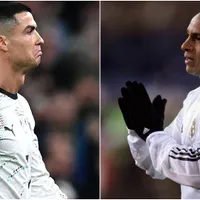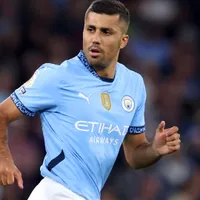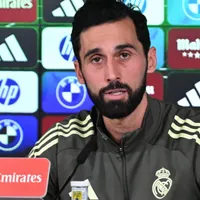
When I moved to the United States from Italy a little over eight years ago, one of the several motivating factors behind the decision was the desire to take a break from soccer.
Covering Serie A in Italy for eight years, pretty much all-day, every day, took me to the brink of soccer burn out. The move to Florida, covering the NFL, NBA, golf, tennis and cricket in the Caribbean, was a fresh challenge and given that Americans didn’t care much about soccer and MLS was something of a sideshow to the main U.S. sports, the game I had been obsessed with since a kid, would take a backseat for a while.
It hasn’t quite worked out like that.
Once I started to investigate the soccer scene in America, I discovered that while not many Americans cared about the game, those that did really cared. What was unique was that the obsessiveness was very different from the kind of all-consuming passion for a team that drove Italian, Hungarian or English fans. In America, so many of the soccer people I met – especially fans, bloggers and journalists, were intensely committed to the game. In particular they were dedicated to what I’ve come to call ‘The Project’ – building the sport in the U.S, growing its influence, creating converts. This was evident in the excitement generated by a good attendance for an MLS game, a good television rating for a national team match, a celebrity showing interest in soccer. Behind every blog post or tweet relating to a bit of positive news was the often-unstated but always present, defiant sentiment of “So no-one cares about soccer in America huh?”
This hasn’t changed much in the past eight years. The topics that generate the most debate amongst American soccer people are issues to do with the growth of the game and the structure of the game, The Project. Not, as in most of the world, refereeing decisions, why a coach should be fired or a certain player benched.
Instead there are endless debates over MLS expansion markets, the merits of promotion and relegation, the league’s calendar, television ratings, natural grass versus artificial turf, attendance, and comparing MLS to other leagues around the world. These domestic zealots have little respect for Americans who just enjoy watching the game and who tune in to follow the Premier League on Saturday morning and catch the Champions League highlights in midweek. The ‘Euro Snobs’, who for whatever reason aren’t interested in MLS, are considered to be traitors to The Project.
I confess that I find most of these debates fascinating. I also find something very admirable in the commitment many make to building the sport in the country with a passion that is by no means any less genuine or intense than that of the Italian ultra or the loyal fan of a lower division English club.
But it seems as if soccer, for the hardcore in the U.S, is almost an ideology – it is the better future for America. It’s globalized, its cosmopolitan, and, perhaps, you sense, seen as more sophisticated than American sports. It certainly feels a little more liberal and the reaction to some frat-boy, college football fan type behavior within the American Outlaws certainly would support that view. Perhaps it is no coincidence that two of the more prolific and obsessed people I’ve come across in the ‘scene’ have backgrounds as organizers and activists in Democratic party politics.
That is not to say that this commitment to soccer is, in itself, necessarily ‘left-wing’. The same kind of fanaticism can be found on the American right in libertarian politics and, for that matter, on the religious right. There is certainly something Evangelical about the desire to convert the country to the one, true sport. In fact, you could argue that wherever there is a ‘cause’ in America, you find this kind of ultra-commitment and subscription to some form of an ideology.
Like all of these scenes, the American soccer world has its own language that is barely understandable to people from outside the milieux. If you are not convinced, try talking about ‘pro/rel’ or ‘Eurosnobs’ to someone who isn’t a hardcore supporter of The Project and take note of the blank or puzzled looks you will receive.
Within the scene though is also another quasi-political trend that is less easy to pigeonhole but which is certainly present. It could be called ‘soccer-nativism’ or ‘American soccer exceptionalism’. It is evident when Bruce Arena says American soccer has nothing to learn from Europe. It was there in the sneers and sniping when David Beckham arrived in MLS. It is constantly present in the debates over Jurgen Klinsmann and the scrutiny of his ‘philosophy’ or supposed ‘European mindset’. I suspect it is also present in discussions about dual-nationality players on the national team and foreign coaches in MLS. It is certainly there when it comes to comments about accents in television coverage. It is the sense that ‘we are building soccer in America and it is going to be ours, it is going to be American soccer’.
This trend is just as committed to The Project, if not more so and its distrust of the role of foreigners, shouldn’t, I stress, be mistaken for racism or any kind of xenophobia. If anything, it is more akin to protectionism, which is certainly not something alien to the political left. It wants American soccer jobs for American soccer people. And it has been pretty successful as a glance at the list of coaches in MLS or commentators and analysts on American television would illustrate.
What makes the Klinsmann situation so fascinating is that he upsets both trends within the American soccer world. He questions MLS and the direction of the game’s progress and he obviously doesn’t believe that Americans can learn nothing from the rest of the soccer world. Yet in his own way, Klinsmann is also intensely committed to The Project and the overall belief that soccer is going to, sooner or later, break through to the mainstream.
When that happens, and I firmly believe that the demographic and cultural trends in this country mean that soccer will become one of the major sports, the ideologues will be pushed to the margins. We can see this already with the supporters of the national team and the more popular MLS clubs. Increasingly, the big crowds behave like Americans fans do at any other sport. They tailgate, they drink beer, they cheer on their team and jeer the opposition. The bigger the crowd in American soccer, the more mainstream the culture is.
And away from the online activists, the bloggers, the podcasts and the soccer media, increasingly, most people who like soccer in America are, I suspect, fairly mainstream people. There are sports fans who probably watch the NFL and the NBA sometimes, catch the odd match from the Premier League on television, maybe go to the occasional MLS game if they have a team nearby, and who cheer on the national team.
And the more mainstream the game becomes, the more corporate it will surely become too because American sport is, of course, extremely corporate. The American soccer decision-makers will embrace the globalized aspect of the game not out of any ideological commitment but because it makes business sense. The more money that pours into the game, the more willing and able American soccer will be to hire the best in the business in an attempt to be the best in the business.
That process will be a testing time for those who have long been ultra-committed to The Project. Perhaps the more hipsterish elements will slowly fade away from a sport which has become too popular. They liked ‘early MLS’, the first two albums before it sold out. The others will probably, like the game itself, gradually move away from the debates over the game’s structures and culture and simply accept what soccer becomes here (whilst probably enjoying the discomfort of the soccer-haters as the game invades their traditional spaces).
American soccer will, I suspect, become both more American and at the same time more ‘normal’ to the rest of the world. As that happens, the subculture of the niche sport will either transform or die out. It may be a painful process for some.
Editor’s note: Every Thursday, World Soccer Talk featured columnist Simon Evans shares his thoughts and opinions on world soccer topics. You can follow Simon on Twitter at @sgevans. Plus, read Simon’s other columns for World Soccer Talk.














